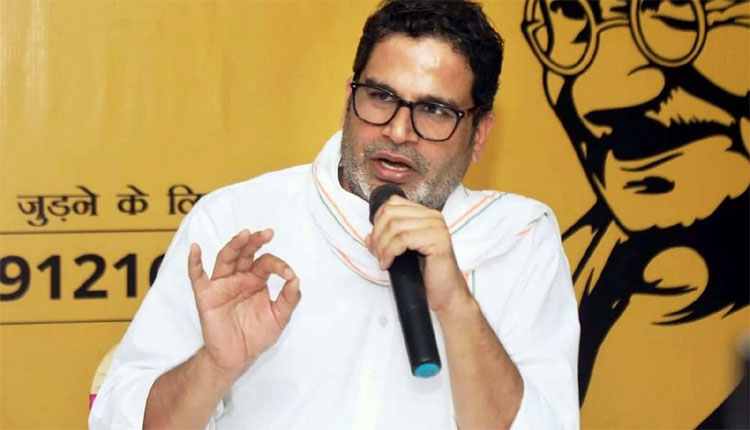Patna: Election strategist-turned-politician Prashant Kishor is set to take a bold step into Bihar’s political landscape as he officially transforms his organisation, Jan Suraaj, into a political party. The launch will take place today at Patna’s Veterinary College Ground, coinciding with Gandhi Jayanti, and marks Kishor’s direct entry into electoral politics.
Known for his strategic prowess in election campaigns across India, Kishor has now decided to test his own political strength. His party’s first major challenge will come in the Bihar assembly elections next year, where he will seek to become a viable alternative to the state’s dominant parties – the RJD, BJP, and JDU.
For the past two years, Kishor has been envisioning “alternative politics” for Bihar, a vision reminiscent of how Arvind Kejriwal’s Aam Aadmi Party emerged as a counterweight in Delhi’s political scene. Through Jan Suraaj, Kishor aims to disrupt the caste-dominated politics of Bihar, which has long been defined by voter bases tied to social identity.
Prashant Kishor’s political blueprint involves breaking into the caste-aligned vote banks of Bihar’s established parties. The RJD, with its core support from Yadavs and Muslims, and JDU, which relies on the support of Kurmi-Koeri and the most backward castes, have historically controlled much of the state’s political narrative. The BJP, on the other hand, draws heavily from upper-caste voters, particularly Bhumihars, Brahmins, Rajputs, and Kayasthas.
Though Kishor himself comes from a Brahmin background, his electoral strategy appears to be focused on capturing support from the OBC, Dalit, and Muslim communities. These groups, which have been crucial to the electoral success of both the RJD and JDU, could shift the balance of power if Kishor successfully courts them.
Bihar’s caste dynamics are complex. With OBCs constituting over 63 percent of the population, along with significant Dalit and Muslim populations, the state’s politics has, since the 1990s, centred on social justice. Lalu Prasad Yadav’s RJD and Nitish Kumar’s JDU have long championed these causes, holding onto power by securing these vote banks.
Kishor, recognising that a reliance on upper-caste votes alone won’t suffice, is working to attract marginalised groups, including Dalits, Muslims, and extremely backward classes. His decision to appoint a Dalit as the first president of Jan Suraaj is part of this broader effort to appeal to underrepresented voters.
The strategist is also framing his campaign around issues such as unemployment, landlessness, and the mass migration of Biharis in search of work. By addressing these economic concerns, he hopes to resonate with those who feel left behind by Bihar’s traditional political players.
While Kishor’s entry into Bihar’s political arena has sparked discussions of potential upsets, it remains to be seen whether he can truly shake the status quo. Both RJD and JDU have vast, entrenched voter bases, built on decades of loyalty from caste and community networks.
However, Kishor is no stranger to tough political battles. He has been a key player in election victories in Gujarat, Tamil Nadu, Andhra Pradesh, Delhi, Punjab, and West Bengal. The question now is whether he can translate his success as a behind-the-scenes strategist into electoral success as a leader.
Bihar’s upcoming elections will be a litmus test for Jan Suraaj and for Kishor himself. Whether his vision of alternative politics will resonate with voters remains to be seen. But one thing is clear: Kishor’s entry adds a new dimension to Bihar’s political landscape, where even a small shift in vote share can have a significant impact on the outcome.



Comments are closed.